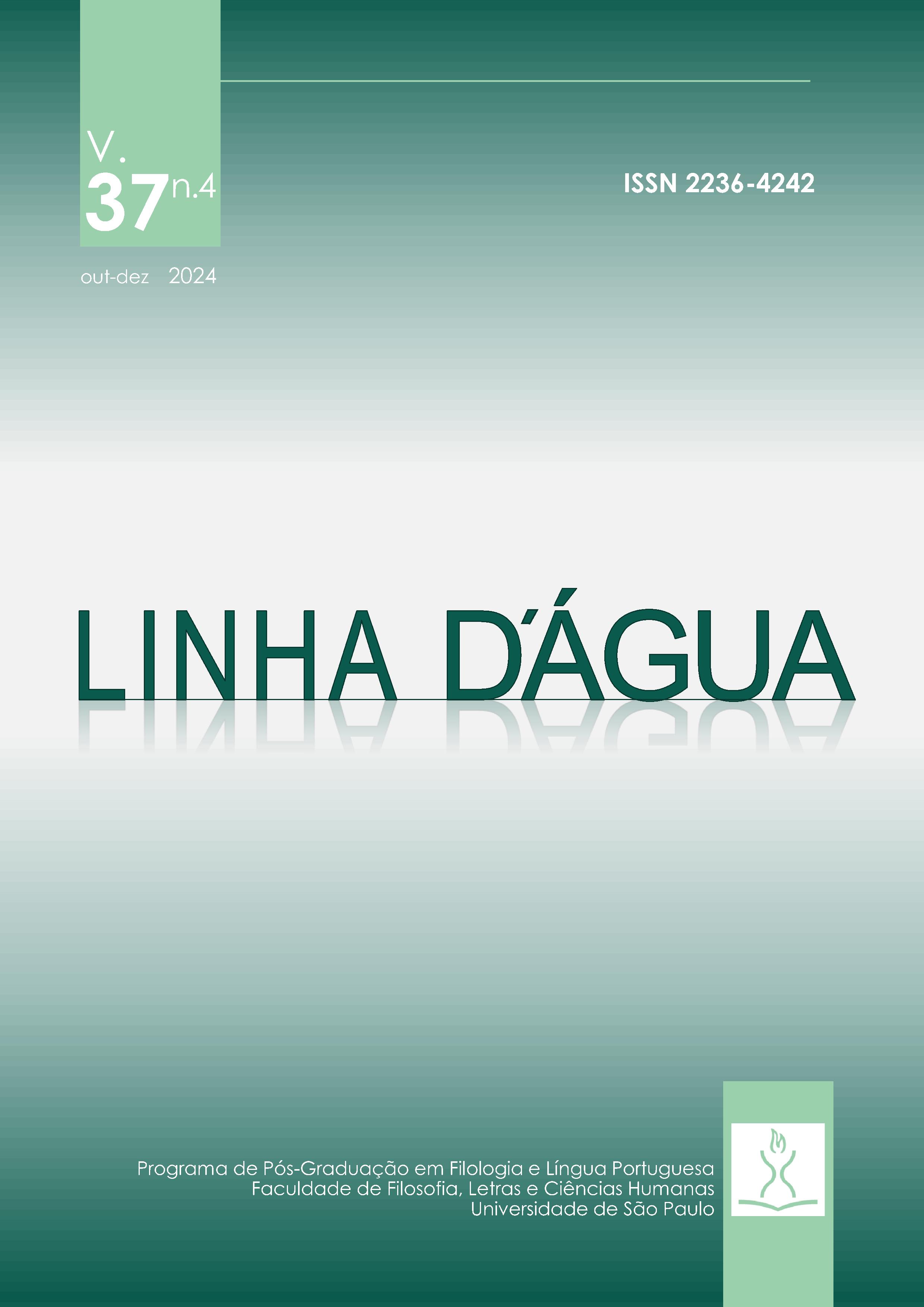“Letter to readers”: Bakhtinian interdiscursive dialogism in Freirean epistolary writing
DOI:
https://doi.org/10.11606/issn.2236-4242.v37i4p250-274Keywords:
Dialogism, Letter, Paulo Freire, Digital heritage, Open ScienceAbstract
This research addresses the interdiscursive dialogicity of the ‘Letter to readers,’ written by Paulo Freire and published as a ‘presentation’ for his book Literacy: reading the world, reading the word. This material shows the educator's handwriting and was digitally made available by the platform that bears his name on the web. Under the methodology of qualitative research, of a bibliographical and documentary nature, the investigation analyzes the linguistic-discursive resources used by Freire to address his readership through epistolary discourse. To this end, we draw on Marcuschi (2008) and Seara (1998), regarding the discursive genre ‘letter;’ Bakhtin (1997[1979]) and Volóchinov (2018[1929]) on interdiscursive dialogism; Bhatia (1997, 2010) on interdiscursivity in professional discursive practices; and Freire (1996) and Gadotti (1996) in relation to Freire’s writing. With this, we can see the dialogical nature of the letter, present in its textual and interdiscursive fabric, immortalized as digital heritage, in which is inscribed the persuasive and dialectical intention of this Brazilian thinker in favor of an education that liberates minds and men.
Downloads
References
ACERVO PAULO FREIRE. Instituto Paulo Freire. Apresentação. Disponível em: https://www.paulofreire.org/acervo-paulo-freire. Acesso em: 13 jan. 2025.
ADAM, J.-M. Textos, tipos e protótipos. São Paulo: Contexto, 2019.
ADAM, J.-M. A noção de texto. Trad. Maria das Graças Soares Rodrigues, João Gomes da Silva Neto e Luis Passeggi. Natal: EDUFRN, 2022.
BAKHTIN, M. Estética da criação verbal. Trad. Maria Ermantina Galvão G. Pereira. São Paulo: Martins Fontes, 1997[1979].
BEZERRA, B. G. Gêneros no contexto brasileiro: questões (meta)teóricas e conceituais. São Paulo: Parábola, 2017.
BHATIA, V. Genre-mixing in academic introductions. English for Specific Purposes, v. 16, n. 3, p. 181-195, 1997.
BHATIA, V. Worlds of written discourse: a genre-based view. Continuum International Publishing Group, 2004.
BHATIA, V. Interdiscursivity in professional communication. Discourse & Communication, v. 4, n. 32, p. 32-50, 2010.
BHATIA, V. Genre analysis: The state of the art. International Journal of Language Studies, v. 9, n. 2, p. 121-130, 2015.
COSTA, R. et al. O papel da linguística na era das humanidades digitais. Linha D’água, v. 34, n. 2, p. 1-8, 2021.
FRANCO, D. de S. A gestão de Paulo Freire à frente da Secretaria Municipal de Educação de São Paulo (1989-1991) e suas consequências. Pro-Posições, v. 25, n. 3 (75), p. 103-121, 2014.
FREIRE, A. M. A. A voz da esposa: a trajetória de Paulo Freire. In: GADOTTI, M. Paulo Freire: uma biobibliografia. São Paulo: Cortez, 1996. p. 27-64.
FREIRE, P. Pedagogia da autonomia: saberes necessários à prática educativa. São Paulo: Paz e Terra, 1996.
FREIRE, P.; MACEDO, D. Alfabetização: leitura do mundo, leitura da palavra. Trad. Lólio Lourenço de Oliveira. São Paulo: Paz e Terra, 2011.
GADOTTI, M. Paulo Freire: uma biobibliografia. São Paulo: Cortez, 1996.
MARCUSCHI, L. A. Produção textual, análise de gêneros e compreensão. São Paulo: Parábola, 2008.
ROLLO, M. F. Desafios e responsabilidades das humanidades digitais: preservar a memória, valorizar o patrimônio, promover e disseminar o conhecimento. O programa Memória para Todos. Estudos Históricos, Rio de Janeiro, v. 33, n. 69, p. 19-44, jan./abr. 2020.
SEARA, I. de R. A palavra nómada. Contributos para o estudo do género epistolar. In: II FÓRUM DE PARTILHA LINGUÍSTICA. Lisboa, Anais […], 2008. Disponível em: https://clunl.fcsh.unl.pt/wp-content/uploads/sites/12/2018/02/isabel-seara.pdf. Acesso em: 13 jan. 2025.
SILVA, P. N. da. Tipologias textuais: como classificar textos e sequências. Lisboa: Almedina/CELGA, 2012.
VOLÓCHINOV, V. Marxismo e filosofia da linguagem: problemas fundamentais do método sociológico na ciência da linguagem. 2 ed. Tradução, notas e glossário de Sheila Grillo e Ekaterina Vólkova Américo. São Paulo: Editora 34, 2018 [1929].
Downloads
Published
Issue
Section
License
Copyright (c) 2024 Simone Cunha

This work is licensed under a Creative Commons Attribution-NonCommercial 4.0 International License.
The Editorial Board authorizes free access to and distribution of published contentes, provided that the source is cited, that is, granding credit to the authors and Linha D'Água and preserving the full text. The author is allowed to place the final version (postprint / editor’s PDF) in an institutional/thematic repositor or personal page (site, blog), immediately after publication, provided that it is available for open access and comes without any embargo period. Full reference should be made to the first publication in Linha D'Água. Access to the paper should at least be aligned with the access the journal offers.
As a legal entity, the University of São Paulo at Ribeirão Preto School of Philosophy, Sciences and Languages owns and holds the copyright deriving from the publication. To use the papers, Paidéia adopts the Creative Commons Licence, CC BY-NC non-commercial attribution. This licence permits access, download, print, share, reuse and distribution of papers, provided that this is for non-commercial use and that the source is cited, giving due authorship credit to Linha D'Água. In these cases, neither authors nor editors need any permission.
Partial reproduction of other publications
Citations of more than 500 words, reproductions of one or more figures, tables or other illustrions should be accompanied by written permission from the copyright owner of the original work with a view to reproduction in Linha D'Água. This permission has to be addressed to the author of the submitted manuscript. Secondarily obtained rights will not be transferred under any circumstance.










